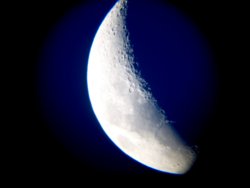 A study in Germany suggests that left to their own devices, people need more sleep in winter, and experience more REM (rapid eye movement) sleep. A team at the Charité Medical University of Berlin recruited 292 patients who had undergone hospital sleep studies. Such studies are regularly carried out on patients who experience sleep-related difficulties. They make use of a laboratory where patients are asked to sleep naturally without an alarm clock. The length, quality and type of sleep can then be monitored. Although sleep disorders in this population could potentially affect the results, this method of recruitment offered a large cohort, evenly spread throughout the year, allowing for the investigation of month-to-month differences.
A study in Germany suggests that left to their own devices, people need more sleep in winter, and experience more REM (rapid eye movement) sleep. A team at the Charité Medical University of Berlin recruited 292 patients who had undergone hospital sleep studies. Such studies are regularly carried out on patients who experience sleep-related difficulties. They make use of a laboratory where patients are asked to sleep naturally without an alarm clock. The length, quality and type of sleep can then be monitored. Although sleep disorders in this population could potentially affect the results, this method of recruitment offered a large cohort, evenly spread throughout the year, allowing for the investigation of month-to-month differences.
The team excluded certain patients eg those who were taking medications known to affect sleep, leaving 188 patients in the study. Most of their diagnoses showed no seasonal pattern, but it was noted that insomnia tended to be more commonly diagnosed towards the end of the year.
Even though the patients were based in an urban environment with low natural light exposure and high light pollution, which would be expected to interfere with any natural seasonal pattern, the researchers found subtle but striking changes as the seasons revolved. Total sleep time was about an hour longer in winter than in summer. REM sleep was 30 minutes longer in winter than in summer. Whilst the team acknowledged that these results would need to be validated in a population which experiences no sleep difficulties, they feel the seasonal changes may be even greater in a healthy population.
A co-author of the study, Dr Dieter Kunz, says “Seasonality is ubiquitous in any living being on this planet. Even though we still perform unchanged over the winter, human physiology is down-regulated, with a sensation of ‘running-on-empty’ in February or March. In general, societies need to adjust sleep habits, including length and timing, to season, or adjust school and working schedules to seasonal sleep needs.”
Robin’s comment: The idea of needing and indeed taking more sleep in winter, is very consistent with the traditional Chinese advice which I touch on in my Seasonal Tips pages.
(Seasonality of human sleep: Polysomnographic data of a neuropsychiatric sleep clinic. Frontiers in Neuroscience, 17 February 2023.)

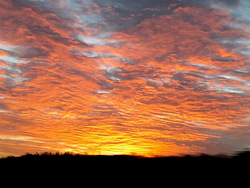 Research by the University of Exeter suggests that some fleeting natural phenomena can affect our perceptions of landscape beauty, and more importantly, stimulate awe.
Research by the University of Exeter suggests that some fleeting natural phenomena can affect our perceptions of landscape beauty, and more importantly, stimulate awe. 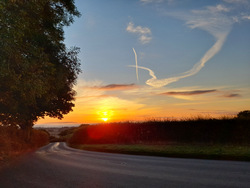 The researchers say “By highlighting opportunities to experience events such as sunrise or sunset, those in both urban and natural settings could experience a small yet significant increase in this hard-to-elicit emotion. Accompanying rises in awe’s associated benefits, such as increased positive affect and higher levels of altruism (Piff et al., 2015; Sturm et al., 2020), may then follow suit. These outcomes might be particularly beneficial for ‘green prescriptions’ that seek to improve participant wellbeing (Robinson & Breed, 2019).” Further, with implications for the planning of our city scapes, “Moreover, by preserving open skies with eastern or western aspects, planning policies might seek to maximize people’s chances of viewing fleeting phenomena.”
The researchers say “By highlighting opportunities to experience events such as sunrise or sunset, those in both urban and natural settings could experience a small yet significant increase in this hard-to-elicit emotion. Accompanying rises in awe’s associated benefits, such as increased positive affect and higher levels of altruism (Piff et al., 2015; Sturm et al., 2020), may then follow suit. These outcomes might be particularly beneficial for ‘green prescriptions’ that seek to improve participant wellbeing (Robinson & Breed, 2019).” Further, with implications for the planning of our city scapes, “Moreover, by preserving open skies with eastern or western aspects, planning policies might seek to maximize people’s chances of viewing fleeting phenomena.”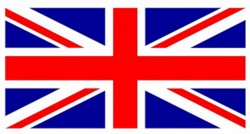 A survey by the University of Southampton of 352 traditional acupuncturists, suggests their work is supporting key UK public health targets for promoting healthy lifestyles. Four key health behaviours – diet, physical activity, smoking and alcohol consumption – are now established as primary causes of ill health in the UK. Large scale surveys have shown patients report making health behaviour changes as a result of complementary medical encounters. Usage of complementary medicine is associated with a belief that health is a result of personal behaviour that may include lifestyle.
A survey by the University of Southampton of 352 traditional acupuncturists, suggests their work is supporting key UK public health targets for promoting healthy lifestyles. Four key health behaviours – diet, physical activity, smoking and alcohol consumption – are now established as primary causes of ill health in the UK. Large scale surveys have shown patients report making health behaviour changes as a result of complementary medical encounters. Usage of complementary medicine is associated with a belief that health is a result of personal behaviour that may include lifestyle.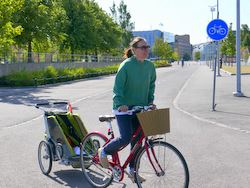 American researchers have found that morning and evening exercise offer different benefits to men and women. For women, morning exercise reduces both abdominal fat and blood pressure, whilst evening exercise improves muscle performance. In men, evening exercise is preferable if the aim is to reduce blood pressure.
American researchers have found that morning and evening exercise offer different benefits to men and women. For women, morning exercise reduces both abdominal fat and blood pressure, whilst evening exercise improves muscle performance. In men, evening exercise is preferable if the aim is to reduce blood pressure. 